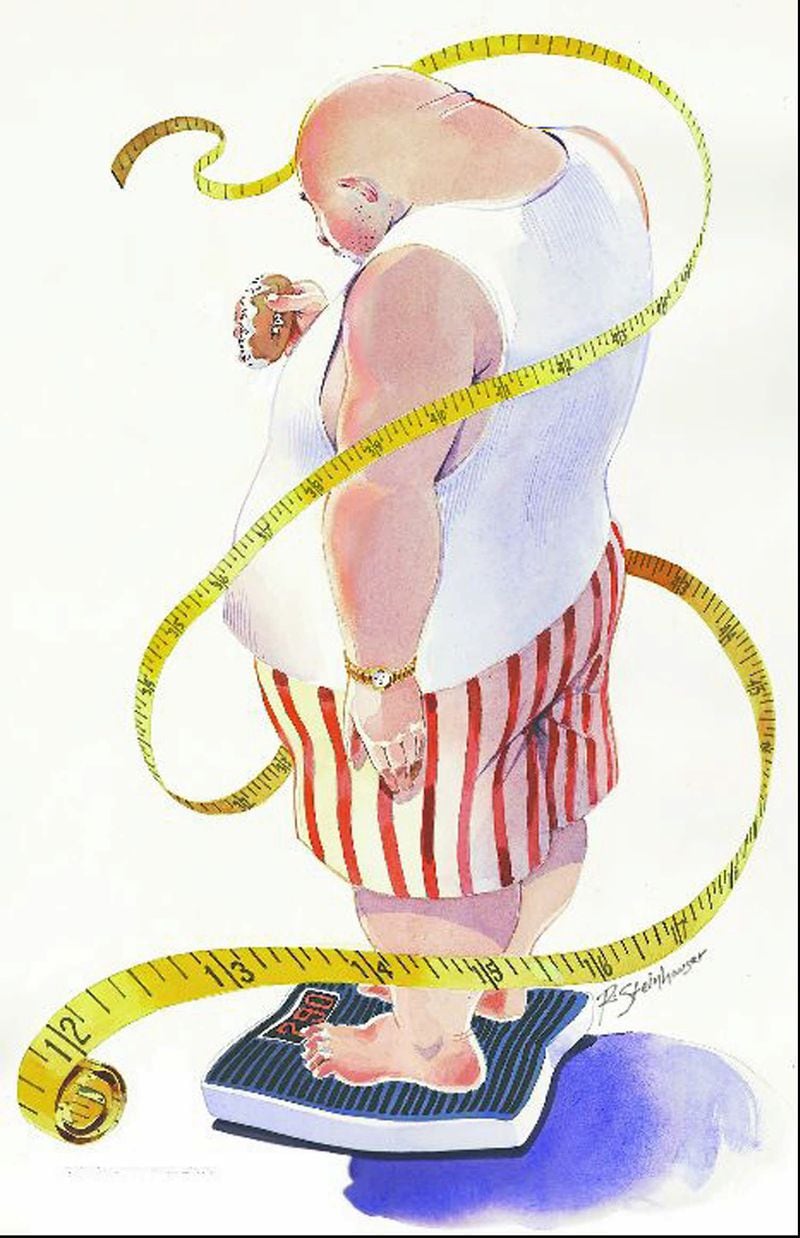Former middle school teacher Anne Birnkammer addresses what she considers the rush in education to embrace fads. She draws a comparison with weight loss.
By Anne Birnkammer
A teacher colleague once told me a funny story about her mother-in-law’s attempt to lose weight. The mother-in-law announced to the family she was dieting, and had purchased these yummy shakes to help her.
Credit: Maureen Downey
Credit: Maureen Downey
Days later, the family observed her eating a healthy portion of spaghetti and meatballs whilst sipping one of the shakes. Upon inquiry, they discovered mom hadn’t cut back on eating, but had just added the calorie-filled shakes to her diet. Of course, they explained to her, “That’s not the way it works.”
I’ve often dreamed of writing a best-selling diet book and making millions. It would contain two instructions, 1) Eat less, and 2) Exercise more. I could title it “Losing Weight Takes Work.”
The same goes for learning. In 15 years of teaching I witnessed a plethora of ‘fad diets’ forced on teachers. Each one claiming to be the ‘research based’ solution for our sluggard students. Many teachers and administrators jumped on every bandwagon.
Why not, if I can drink some shakes to lose weight, why would I bother dieting and exercising? Likewise, if I can impart knowledge through a computer game, or having them work in groups and learn from each other, why would I sweat over planning, teaching, reflecting, re-teaching, collaborating with other teachers and counselors, one-on-one tutoring, and endless parent meetings?
Year after year I watched as my school system spent millions of dollars on the latest ‘silver bullet.’ Each one disappearing quietly to the dust-covered shelf of passé’ diet books, replaced the following year with a new elixir. Most were simply old remedies repackaged and renamed. And year after year, most of my colleagues, cynical from the barrage of ever-changing jargon, sat quietly through sales pitches and training sessions, only to go back to their classrooms and continue their tried and true hard work of diet and exercise.
You see, the best-selling book for education is a short one, too. Titled “Learning Takes Work,” it has a few simple instructions, 1) Pay attention and take notes 2) Do the assignments 3) Ask for help.
Yep, that’s the secret formula. Now, if a child were capable of consistently doing these three things on his own, we wouldn’t have much need for teachers. We could just hand him a textbook, or sit him in front of computer. That’s the catch.
“Learning Takes Work” is a program, not just for students, but also for parents, teachers, administrators, counselors, elected officials, appointed officials, need I go on? Education is a slow and unpredictable process. Just like losing weight, it requires commitment, persistence, and support.
Accepting this fact seems to be what’s missing from the "conversation" these days. A lot of blame is being tossed around, and the word "accountability" is routinely overused. It is no more public education’s fault that Johnny can’t read than it is the fast-food industry’s fault that Americans are obese.
Teachers get it. Why doesn’t everyone else? In my 15 years of teaching I watched the value of hard work slowly diminish. Students have multiple chances to retake tests, unlimited deadlines on work, and receive passing grades just for handing something in, regardless of the quality of work.
I even had a year when we were not allowed to give zeros. We had to put a 50 in the grade book for any assignment not completed. More than once, I was instructed to change a grade (yes, that is common).
Of course, no child is left behind; we keep picking them up and carrying them to the finish line! Want to lose 20 pounds? Just recalibrate your scale.
The policymakers are under the delusion if you raise the bar, students will rise to the challenge. That’s like asking the dieter to lose 30 pounds in a month instead of 10. Sure, let’s set them up for failure.
Administrators are under a similar delusion that if they tout student data and force teachers into competition, performance will improve. Right. As soon as I am publicly humiliated by my failure to lose 2 pounds , I'm going straight for the candy stash in my top right drawer.
About the Author







